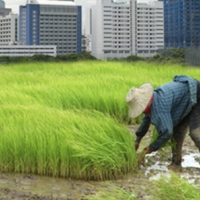The tourism boom in Bali: Is it harming prospects for long-term economic growth?

Abstract Tourism now dominates the regional economy of Bali, and its direct economic benefits are demonstrably large. However, Bali’s tourism focused development strategy has been criticized for some of its social, cultural and environmental effects, and for potentially hampering sustainable long-term growth through ‘Dutch disease’ effects of tourism boom on other more dynamic tradable sectors, particularly manufacturing. In this paper, we discuss the economic effects of tourism on overall growth, structural change, employment and wages, household and spatial distributional effects, and potential for technological change and longer-term growth. We show that tourism has promoted a complex web of interactions with other industries, and contributed to rapid structural change, skills development and the widespread dissemination and application of information technology. We contend that the application of the conventional Dutch disease model can be misleading in assessing the economic impact of tourist growth in Bali. It is important to recognize that (a) Bali is a regional economy within the much larger national economy of Indonesia, with high levels of integration in both factor (including labour) and product markets, and (b) tourism is a very dynamic export industry, operating in a highly competitive and rapidly changing international market, and requiring increasingly sophisticated managerial and entrepreneurial skills. While many of the negative socio-cultural and environmental effects are serious and must be addressed through appropriate regulatory regimes, they are not very different from effects seen in other economies undergoing rapid growth. Our overall assessment is that tourism, based on Bali’s natural, cultural and economic endowments, is a viable alternative to labour-intensive industrialization and demonstrates that ‘services based growth strategy’ can be quite appropriate in some circumstances.
Key words: Bali, Indonesia, growth, structural change, tourism, Dutch disease
JEL Codes: F15, J62, 014, 015, 018
Updated: 1 July 2024/Responsible Officer: Crawford Engagement/Page Contact: CAP Web Team











